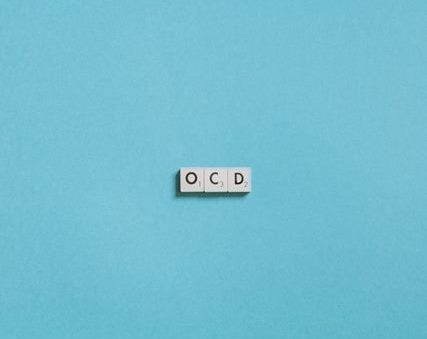Last Updated on May 16, 2023
Are you constantly plagued with persistent and recurring thoughts, impulses, or images that leave you feeling anxious, stressed, and distressed? Do you find yourself performing repetitive actions that you feel compelled to do just to reduce this anxiety? If this sounds like you, it’s possible that you may be struggling with a condition called Obsessive-Compulsive Disorder (OCD).
But how do you know if you have OCD? This is a question that many people ask themselves, and often it’s difficult to know for sure.
In this article, we will delve into the signs and symptoms of OCD and help you understand how to seek help if you suspect that you may be living with this condition. Don’t let OCD control your life any longer. Let’s find out if you have it and take the first step toward recovery.

What Is Obsessive-Compulsive Disorder (OCD)?
Obsessive-Compulsive Disorder (OCD) is a mental health condition that affects millions of people worldwide. It is characterized by two main components, which are obsessions and compulsions.
First, obsessions are persistent and recurring thoughts, impulses, or images that cause anxiety or distress. These thoughts can be about anything, but they are often related to things such as germs, safety, or morality.
Examples of obsessions include thoughts about harming oneself or others, having a serious illness, or committing immoral acts. These thoughts are often unwanted and can be difficult to control.
Compulsions are repetitive behaviors or mental acts that a person feels compelled to perform in order to alleviate the anxiety or distress caused by obsessions. These behaviors can be physical or mental.
Some examples of compulsions include excessive cleaning or hand washing, counting, repeating words or phrases, and checking things multiple times – even when you already did. Compulsions are frequently performed rigidly and repetitively, and the individual may feel compelled to repeat the behavior until it feels “just right.”

Individuals may experience obsessive or compulsive-like thoughts or behaviors at some point in their lives.
However, when these thoughts and behaviors become severe and persistent, they may be indicative of Obsessive-Compulsive Disorder. These thoughts and behaviors can consume a significant amount of time and disrupt daily life, interfering with work, school, and relationships.
What Are the Types of OCD?
There are several different types of Obsessive-Compulsive Disorder (OCD). Each is characterized by specific symptoms and patterns of behavior. Here are a few examples of the different types of OCD:
Contamination Obsessive-Compulsive Disorder
This type of OCD is characterized by an excessive fear of germs, dirt, or other contaminants. People with contamination OCD may engage in excessive cleaning or hand washing, or avoid touching certain objects or surfaces.
Harm Obsessive-Compulsive Disorder
This type of OCD is characterized by an excessive fear of causing harm to oneself or others. Individuals with OCD may experience persistent thoughts or images of harming others and may engage in compulsive behaviors such as checking or seeking reassurance to prevent harm.

Scrupulosity Obsessive-Compulsive Disorder
This is an excessive fear of committing moral or religious sins. People suffering from scrupulosity OCD may experience persistent thoughts or images related to religious or moral themes, such as blasphemy. They may also engage in compulsive behaviors such as confessing or praying.
Symmetry Obsessive-Compulsive Disorder
This is an uncontrollable need for symmetry, order, and precision. Individuals with symmetry Obsessive-Compulsive Disorder may become preoccupied with arranging objects in a certain way. They may experience distress if things are not symmetrical or orderly.
Read: Navigating Food Allergies and Intolerances
Pedophilia Obsessive-Compulsive Disorder
This type of OCD is characterized by an excessive fear of being a pedophile or committing an act of pedophilia. Those who suffer from Pedophilia OCD may experience persistent thoughts or images related to children and may engage in compulsive behaviors such as seeking reassurance or even avoiding kids.
Sexual Orientation Obsessive-Compulsive Disorder
Sexual Orientation is an uncontrollable fear of being gay or straight. Or that one’s sexual orientation is not what they want it to be. Individuals with Sexual Orientation OCD may experience persistent thoughts or images related to their sexual orientation. They may also engage in compulsive behaviors such as seeking reassurance or avoiding certain situations to confirm their sexual orientation.
However, it should be noted that these are just a few examples of the various types of OCD, and symptoms can vary from person to person. A mental health professional can provide an accurate diagnosis as well as a treatment plan.
Signs and Symptoms of OCD
The signs and symptoms of Obsessive-Compulsive Disorder can vary from person to person. But some common signs and symptoms include:

Obsessions
Although this goes without saying, unhealthy obsession is a sign of OCD. These are persistent and recurring thoughts, images, or impulses that are unwanted and distressing. In addition, common obsessions include thoughts or images related to contamination, harm, moral or religious sins, symmetry, or pedophilia, among others.
Compulsions
These are repetitive behaviors or mental acts that are performed in response to obsessions or in an attempt to alleviate the anxiety or distress caused by the obsessions. Common compulsions include cleaning, handwashing, checking, counting, praying, confessing, or arranging objects.
Impairment
OCD can significantly interfere with an individual’s daily life, including their ability to work, study, or maintain relationships.
Anxiety
Individuals with OCD often experience high levels of anxiety, especially when they are unable to perform their compulsions.
Read: How Does Volunteering Positively Impact Your Life?
Engaging in Rituals
People suffering from OCD may engage in specific rituals or routines that they believe will prevent something bad from happening.
Time-Consuming Activities
The obsessions and compulsions of OCD can consume a significant amount of time, often taking up several hours of each day.
Distress
Individuals with OCD often experience significant distress related to their obsessions and compulsions.
Embarrassment
People with OCD may feel ashamed of their thoughts and behaviors and may go to great lengths to hide them from others.

What Are the Causes of Obsessive-Compulsive Disorder (OCD)?
While the exact cause of OCD is not fully understood, research suggests that a combination of genetic, biological, environmental, and psychological factors may contribute to the development of the disorder.
Let’s explain these possible causes of OCD.
Genetics
Many studies have shown that OCD tends to run in families, suggesting that there may be a genetic component to the disorder. Research has also identified several genes that may be associated with OCD. However, it is important to note that no single gene has been found to cause OCD.
Biological Factors
Research suggests that OCD may be caused by abnormalities in certain areas of the brain and in the levels of certain neurotransmitters. These are chemicals that transmit signals between nerve cells in the brain.
Environmental Factors
Trauma, abuse, or other stressful life events may contribute to the development of OCD. Additionally, certain infections, such as streptococcal infection, have been associated with the development of OCD, particularly in children.
Psychological Factors
OCD has been associated with certain personality traits, such as perfectionism, and certain cognitive styles, such as negative thoughts or worries.
Cognitive Behavioral Factors
OCD is considered an anxiety disorder and has been linked to cognitive processes such as negative thoughts, worries, and fears.
Research on Obsessive-Compulsive Disorder is ongoing, and more information is needed to fully understand the disorder. If you or someone you know has OCD, it is important to seek the assistance of a mental health professional for a proper diagnosis and treatment plan. Do not hold symptoms with levity as they may eventually turn serious and hard to tend to later.
How Can I Treat OCD?
While OCD can be challenging to treat, there are several effective options available that can help manage symptoms and improve quality of life.
Medication
Antidepressant medications, such as selective serotonin reuptake inhibitors (SSRIs), are effective in treating OCD. These medications increase the levels of certain neurotransmitters in the brain that affect mood and anxiety.
Commonly prescribed SSRIs for OCD include fluoxetine, fluvoxamine, sertraline, and paroxetine. But it is important to work closely with a psychiatrist or mental health professional to find the right medication and dosage for you.
Cognitive-Behavioral Therapy (CBT)
This type of therapy focuses on changing the negative thought patterns and behaviors associated with OCD.

It involves exposure and response prevention (ERP) which is a technique where a person is gradually exposed to the source of their obsession and then prevented from carrying out their compulsions.
This can help reduce the obsession’s strength and urge to perform compulsions.
Family Therapy
Family therapy can help family members understand and support the person with OCD, and can also address any relationship problems that the disorder may cause.
Mindfulness and Relaxation Techniques

Mindfulness and relaxation techniques, such as meditation and yoga, can help reduce symptoms of anxiety and stress, which can help manage OCD.
Support Groups
Joining a support group can provide a sense of community and understanding for people with OCD and can also be a source of information and resources.

It is important to note that treatment for OCD is highly individualized, and what works for one person may not work for another. However, a combination of therapy and medication is frequently regarded as the most effective treatment approach.
Subsequently, we recommend working with a qualified mental health professional who can provide a proper diagnosis and treatment plan tailored to your specific needs.
Hey, thank you for reading this blog to the end. I hope it was helpful. Let me tell you a little bit about Nicholas Idoko Technologies. We help businesses and companies build an online presence by developing web, mobile, desktop, and blockchain applications.
We also help aspiring software developers and programmers learn the skills they need to have a successful career. Take your first step to becoming a programming boss by joining our Learn To Code academy today!
Be sure to contact us if you need more information or have any questions! We are readily available











